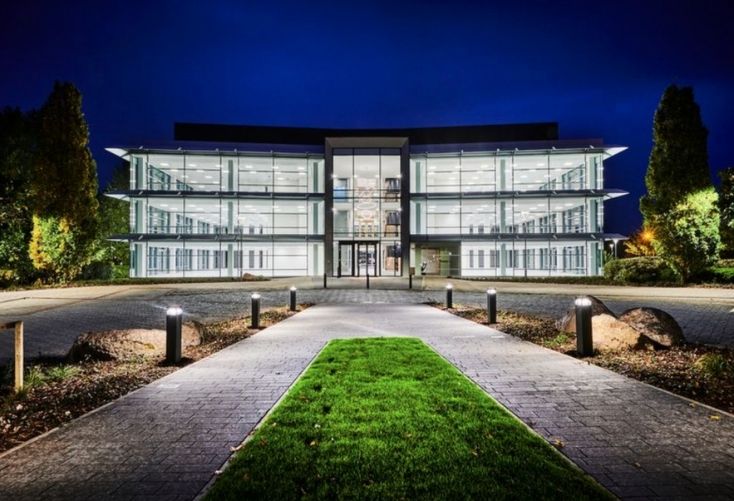In a world where remote work is commonplace, is office culture still relevant?

This article was originally published by Allwork.Space.
Office culture has traditionally gone hand in hand with attracting and retaining the best talent. But in a world where remote working is becoming commonplace and people aren’t always expected to commute into work, has it become irrelevant?
Last week, Office Principles hosted a webinar focusing on the changing face of workplace culture in the context of the office.
Three expert panellists shared their experiences of designing healthy and engaging spaces based on a clear, shared vision.
Everyone agreed that there’s still a place for the office. But for a destination to succeed, it needs to reflect the company’s culture and core values.
The speakers were:
- Melanie Marsden – Co-Founder & Chief Brand Manager at Lounge, a lingerie and loungewear online retailer that recently opened a new 54,000 sq ft HQ in Solihull.
- Martin Silvester – Global Director at Arcadis, a global design, engineering and management consulting firm with 350 offices across 40 countries.
- Scott Parsons – Managing Director at Forsyth Barnes, a Nottingham-based recruitment firm that in November, unveiled a new £1m office space.
Let your culture inform the physical space
Arcadis sees a strong need to maintain workspaces, says Martin, who adds that the company plans to reduce its office footprint by around 30%.
(This isn’t that drastic when you consider that some companies are scaling it right back.)
After a year or so of home working, an increasing number of Arcadis’s staff are expressing a desire to return to the office.
The company is in the process of redesigning its offices around its “workplace promise”, which aims to make the workplace sustainable and inclusive for everyone.
With 27,000 employees based all over the world, in different cultures, it wouldn’t be viable for Arcadis to operate a one-size-fits-all approach to office design. Engaging regional architects is part of their approach (i.e. a German architect firm for an office in Germany).
“We want every Arcadis office to feel like the brand but not one-size-fits all.”
The company is considering classifying people into different “work styles” depending on their role. Some will be office-based, others will be hybrid workers, then there will be “borderless workers”; people with global responsibilities.
Martin explains that Arcadis has invested a lot in the workplace culture piece, making sure that it aligns with the company’s core values of people-first, client success, sustainability, integrity and collaboration.
Trusting your employees is paramount
Arcadis has focused on building even stronger relationships with employees during the pandemic, and the trust the company has put in its employees has really paid off.
The company has experienced “higher productivity” and better financial results in some areas. Engagement scores are also higher than they were before the lockdown.
The main challenge, according to Martin, is “not to go back to the old ways of working.”
Arcadis’s managers were used to managing virtual teams because the firm already embraced hybrid working prior to the pandemic. However, in line with the expansion of the hybrid approach, they’ll be upskilling their managers in remote leadership.
One of Martin’s colleagues described the office as a place where you can “recharge your social capital” – a concept that Arcadis intends to tap into moving forwards.
With the help of Office Principles, Arcadis has created a new London office with fewer desks and more areas where people can “get together.”
The workplace as a home away from home
Mel says that Lounge’s company culture hinges on making people feel like they’re part of something; like they’re connected to the journey the business is on.
Lounge’s team has grown from 28 to 120+ people over the course of the pandemic.
Mel explains that when designing their new HQ, the focus was on how to emulate the family ethos in the built office environment, while ensuring that collaboration comes naturally for everyone.
Some employees know each other from before the pandemic, whereas others have only communicated in a virtual setting.
Together with co-founder Dan Marsden, Mel decided to pursue the idea of the HQ as a home: a place of comfort where you feel safe; somewhere to build memories and feel like you can truly be yourself.
Lounge set out to make its new building, which is a huge glass structure, feel smaller than it really is. To do this, they’ve included:
- Tea areas called “brew bars” to facilitate organic interactions
- A “sunken snug” that looks out onto an amazing view
- Inspiring signage in different parts of the building
A lot of companies are ditching dedicated desks in favour of hot desks. However, Lounge thinks it’s important for people to have their own desk as well as access to more relaxed, communal settings.
Mel says Lounge’s Head of People is “the definition of a people person” and she’s been “working hard to keep that connectivity.”
“We’ve had tea at 3 o’clock every Wednesday, yoga, quizzes; we’ve surprised staff with parcels. The business has gone through crazy growth and we usually celebrate together.
“Coming back together will really turbo-charge that culture.”

Making the office accessible for everyone
Forsyth Barnes is six years old and the company has moved office multiple times as it’s grown. Scott sees his new HQ in Nottingham as a permanent home that’s “accessible for everyone.”
They’ve focused on making the space “so awesome that people want to come in and collaborate with their peers,” he explains, adding that Zoom just can’t replicate the effectiveness of in-person interaction.
The average age of Forsyth Barnes’s team is ~30. During the pandemic, parents were able to bring their children into work. Having a mini cinema on site was particularly useful for this, keeping the kids safe and entertained.
When asked if he worried about the level of investment involved in the new office project, particularly at such an uncertain time, Scott says he’d be lying if he said “no”.
But during a long management call over Zoom, the company decided that they work better collaboratively. Instead of thinking short-term, they decided to plan for the next five to 10 years. “We believed in what we were building and the culture,” says Scott.
Forsyth Barnes plans to take learnings from its Nottingham HQ and apply them to its locations London and New York.

